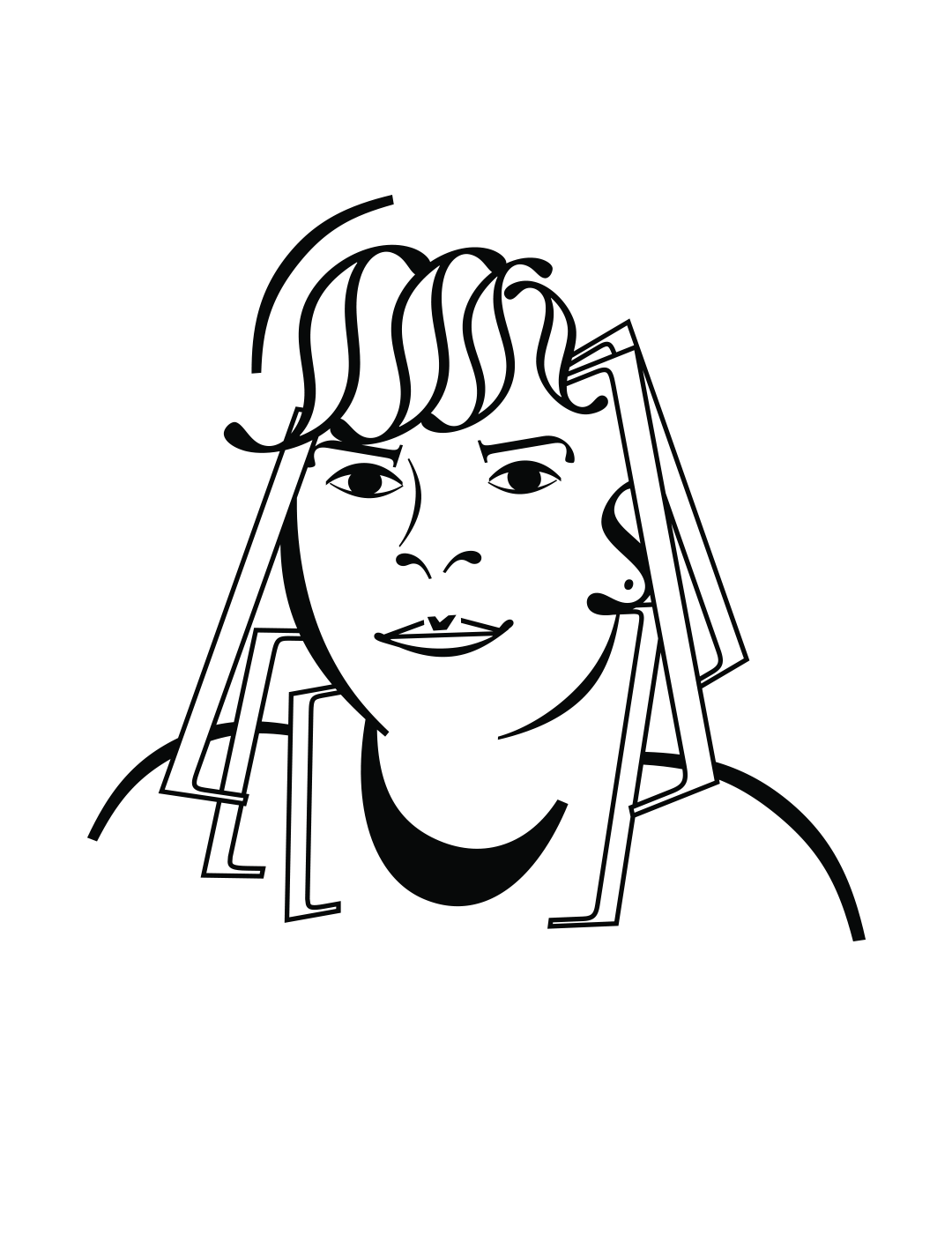Sophie Willison--- 27 May 2018
By Lorenzo Princi
What you do?
So, I’m a fine art photographer and I publish a magazine and I work at the museum of contemporary art and a photography lab as front of house and as a curator.
Where does your passion for photography come from?
Oh, well I think it was definitely my dad. He gave me my first camera when I was five years old; like a little film camera and I used to run around taking photos and I had my first photo album as well when as I five.
It’s really quite interesting actually to look back on that and see what I was interested in at that age and it feels like, when you like something from a young age, it feels like when it translates through to who you are now it’s more genuine.
Yeah, so probably my dad, he would always take photos all the time and he’d always-- if he saw a nice moment, he’d say, “Stop! It’s a Kodak moment” and he’d go and get his camera and he’d come back and take a photo. So I think definitely inspired by him and I think he likes to take credit for it as well. So when I take a nice photo he’s like, “Oh, you know, you wouldn’t be here without me” kind of thing [laughs] which is quite sweet.
"He gave me my first camera when I was five years old; like a little film camera and I used to run around taking photos."
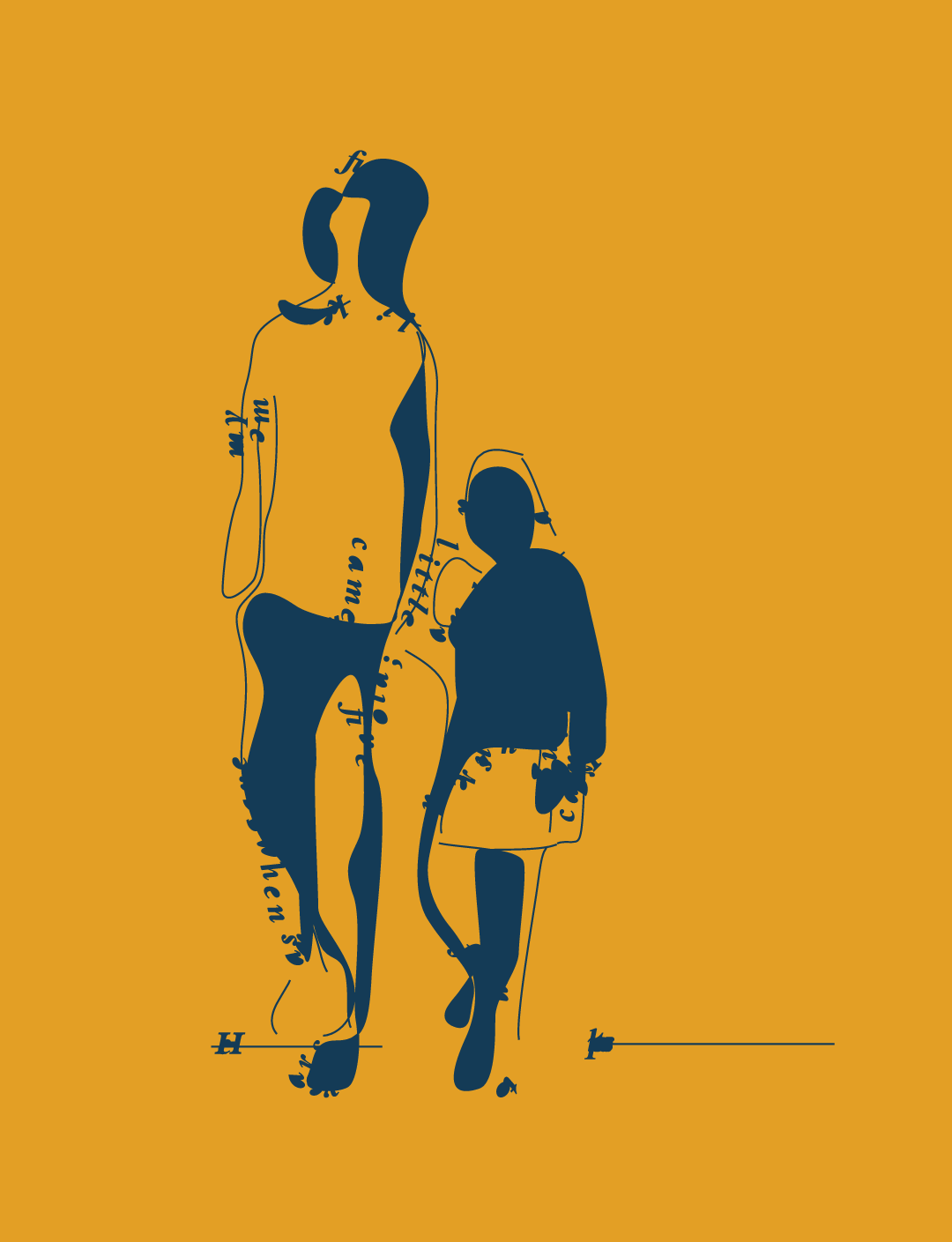
That might speak to your style, it’s a very distinctive style, there’s something quirky, simple and nostalgic about your photos, is it something you’ve intentionally developed?
I think so-- I think, because when I decided to study photography, it was like a real revelation because I’ve alway been someone who’s a little bit good at everything but never really good at just one thing. So when I found photography it really opened me up and I was just much happier having it and using it as a tool to kind of present myself or like my ideas or way I see the world.
And I think I was really lucky in my education in photography. It wasn’t necessarily a really prestigious school but it was almost like a hidden gem in the middle of all this, like, suburbia. And not many people knew about it and my lecturer was very much kind of supportive of sensibility and he didn’t really care if you like only submit like one picture as long as it had something to it. He really kind of carved in to us the idea of creating your own unique style and like not-- if you look at other people for inspiration that’s good but then don’t copy them, you know? Take from it what you like and make it your own.
So, I feel like that’s always been on my mind and I try and take photos of things that I don’t feel that-- I don’t know, it’s not possible to take photos of things that have never been taken before but like, if I hold my camera up to something and I think, “oh no, that’s not--” you know, I feel like I’ve already seen that before…
But then sometimes it’s nice enough to just take that anyway... but I always have that idea in the back of my mind-- actually one of the themes for one of the Terra Firmas, for Issue 2 was the concept of originality and so, in this day and age it’s very difficult to be original but always having that idea in the back of your mind would help elevate that perhaps. Yeah, it’s nice that you say I have a bit of a style!
Lorenzo: Well, there’s so much photography now, of food or whatever that when you do see someone who’s doing something interesting you do stop and say, “Hey, that’s someone who knows how to frame a shot” as opposed to just polished photos that may look nice because the tools allow them to make them so but they aren’t interesting...
Sophie: It’s very boring, [laughs]. It makes me sad… yeah, well, it’s hard. It’s something that I’ve spoken about a lot. It’s obviously very saturated but if you are genuinely doing something that’s good and new, you’ll stand out from it and you don’t have to worry about that I guess...
"When you like something from a young age, it feels like when it translates through to who you are now it’s more genuine."

You did some mentoring at a very young age, how did that come about and how was the experience?
Yeah, that was really exciting actually. It was when I was in my first year at uni and I just really loved making my own work books with really-- deep and layered and trying to do different things with my books all the time. I would have these weird fold-out things and I would cut stuff out and stick stuff in and my lecturers were like, “you’re really good at this, you should probably show this to the third year students” and I was like, “oh, okay?” and they were like, “would you be interested in actually mentoring them” and I was like, “oh, yeah but would they be offended because I’m in the first year?” And they were like, “no, it’s really good, you should do it.” So I was like, “okay.”
So, one of the first people I lectured, I think I was seventeen or eighteen and he was like a thirty year old in his third year and I think he had to get over-- he had a bit of a, you know… I was like, “oh, I’m just here-- I want to learn with you, we’ll do this together.”
It was really fun because it was my first proper paid job. I was actually on a-- I got a little paycheck and it was really exciting and it was kind of nice to fund, like photography because obviously film and paper is expensive and obviously I got my grant and stuff but yeah it was good to do that and it was fun and kind of nice to like work with other people to cultivate their ideas as well as see how other people think when they’re working through their course because I feel like it’s a unique thing. You don’t really get to mentor people who are, I don’t know, ahead of you almost because you haven’t really gone there yet and you don’t know what it’s going to be like. It gave me-- almost an eye into what it would be like and yeah, I really enjoyed helping.
"If you are genuinely doing something that’s good and new, you’ll stand out."
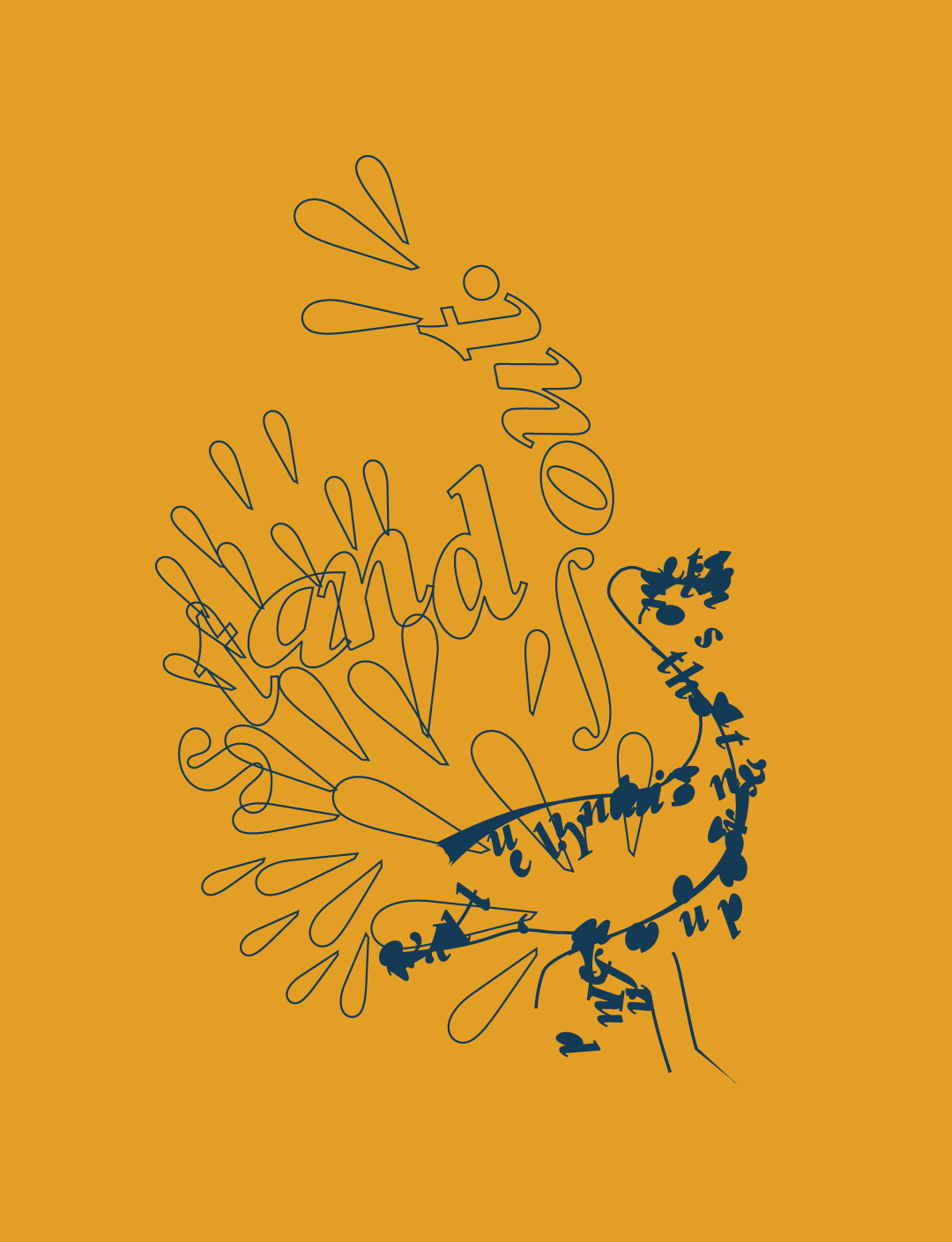
Speaking of working with others on their ideas, you also do some curating of photography exhibits, how are you finding it, is it different when it’s other people’s work rather than your own?
Oh yeah! It’s one of my favourite things-- if someone goes, “oh, I have these pictures, like what do you think?” And I love to go, “I like this one, this one, this one works really well together--” and it’s much more of a different relationship because there is-- when you take your own pictures you go, “Oh, I worked really this hard to get this picture, I had to climb this hill, I had to go at this time and so when you don’t have that you are like detached from it and you can be really honest with it and I think that’s why it’s one of my favourite things to do because there’s no repercussions if you get rid of one, you know, you feel like you have no attachments to it so yeah-- and it just feels, I don’t know, the purist form? It’s just, yeah-- and I feel like when I’m going through other people’s pictures and I see one I really like I know that I like it because I wish I had taken it and I’m like, “That’s really good, I wish that I’d taken it, I wish that was mine!” And you want-- you can take something from it, yeah...
Somewhere around 2015 or 2016 after finishing your studies you moved back to Australia, how did that come about and how are you finding it?
Well I’m half Australian-- half English/half Australian and I used lived here when I was younger. I always wanted to move back to Australia so it was kind of-- my parents always wanted to move back to Australia but it kind of got a bit too late to move our whole lives back over here after I got into schooling and uni and stuff so they were just like, “Oh let’s go for a trip” and then yeah, things happened and I decided to stay and they went back to the UK. And I really, really love it here so far, like more than I ever though I would. I feel like there’s been so many opportunities and it’s quite exciting here, for me in this time anyway.
That was about the same time you started Terra Firma. You had some previous experience working at VERY magazine but what drove you to start a publication like Terra Firma?
Yeah, I think it was mostly me wanting to publish my photos somewhere-- in a magazine-- in a printed thing with paper and binding and I was like, “well, no one knows who I am and I’m just like this young, fresh photographer-- like might as well just make something myself.” And then I was like, “Well, I can’t just make a whole magazine just with my own photos, that’s really like--” [laughs] and then I was like, “Well maybe I can give my friend’s film cameras?”
So, I gave like five friends film cameras and two rolls of film and three weeks to shoot, document their lives and they gave me their film back and I processed it all, went through all their pictures and they didn’t see anything until the end-- until it was all published in the magazine. And that was really fun because in each person’s kind of life or story they, kind of-- it had many different narratives going on. For example there was this one guy who seemed to being seeing lots of different girls and would also photograph his dinner and his room and everything and I was like, “This girl thing is the most interesting thing, I’m going to do something with that and portray him in this way.” And it was just really fun, I don’t know-- this fun power thing you know, like “I’m in charge, I can do what I want!” And then I put it alongside my photos and well.
Lorenzo: And how have the themes for each issue come about?
Sophie: I always try and chose a theme which is somewhat relevant, something I’m interested in or something-- I try and do something that’s never been done before, like I wouldn’t do a theme like, I don’t know, feminism-- or maybe actually [laughs]. Yeah, it has to be something I want to learn more about because otherwise it would be a chore then wouldn’t it really?
So, yeah-- and with this-- so issue five is going to be reduce, reuse, recycle and I just think, to have this platform, to have a magazine, you have to really I don’t know, it’s really a voice isn’t it? You have to use it to do good things or make change or educate people. I don’t just want to create something that’s got nice pictures you know, it’s much more than that because there’s so much stuff out there that’s almost a waste of paper and stuff...
But, also going back to how the magazine started, it was a lot to do with my lecturer as well because he was very interested in magazines and publishing and he kind of-- he really kind of let me get on with it. He wasn’t too worried about me just not presenting pictures, he was really happy that I was doing other stuff as well so he helped cultivate that I think? Like being able to just get on with what I was doing, in being confident with myself and what I was-- like what direction I was going in.
"I gave like five friends film cameras and two rolls of film and three weeks to shoot, document their lives."
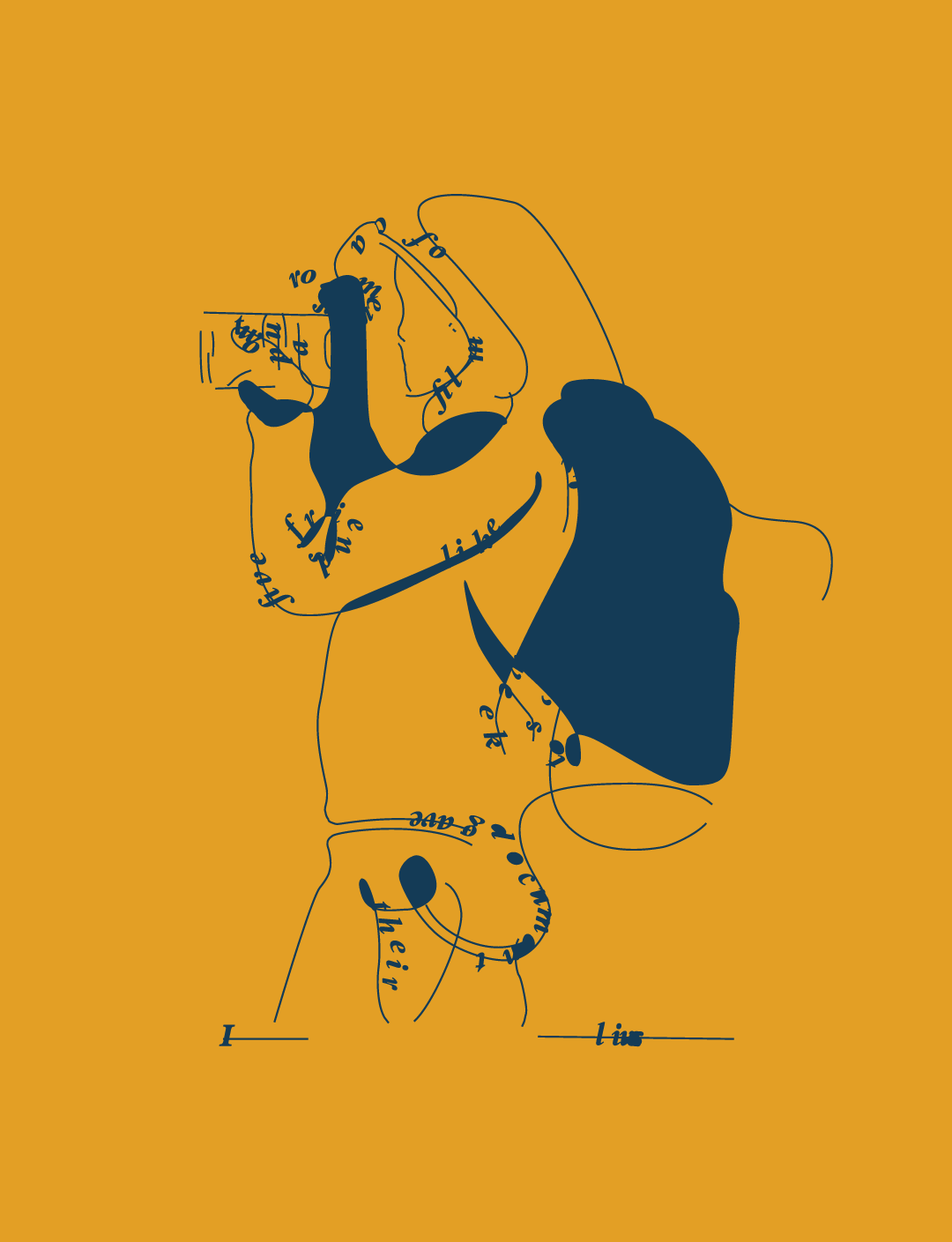
Speaking of having a voice, you're involved in the zine community, how do you find that world, which inherently is underground but becoming quite popular through mainstream zine fairs, such as the MCA, which allow people to explore an alternative to social media to get their messages out.
Yeah it’s very exciting, and it’s nice that it’s so accessible because everybody can say something that-- you know you don’t have to have a certain amount of money to produce it, you can just make a few and make them yourself. Yeah, I don’t know, it’s exciting and it’s nice that it’s becoming more of a thing again. I do really like zines and just the fact that they’re short run and I don’t know-- it just feels more raw and to be able to speak about what you want to speak about and not really worry about having to make money or being distributed somewhere or just be able to make something. Like, a lot of people I spoke to just made something the night before and they just cut stuff out and there’s something really nice to that. It’s not a really long duration and too much thought put into it and it just feels like they’re throwing themselves onto the zine and it’s a really nice representation of them or their values in that one moment of time or something.
"It just feels like they’re throwing themselves onto the zine and it’s a really nice representation of them or their values in that one moment of time."
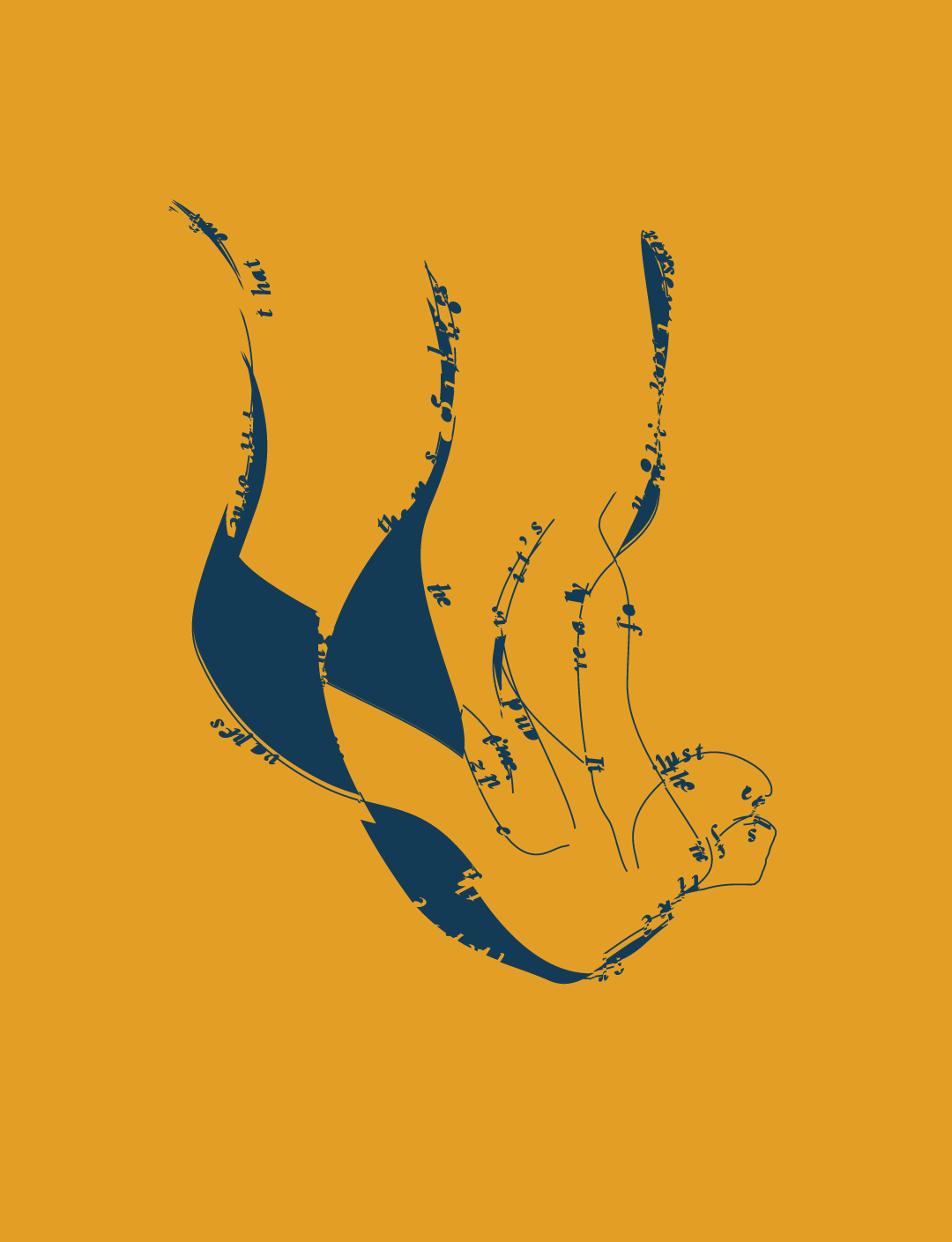
This movement is also coinciding with self-publishing tools which is helping keep print alive, in a way, with short run formats. Along with other services such as Kickstarter which you used to get Terra Firma off the ground? How are you finding these things in terms of helping enable creators?
I think they’re good but it's tricky because they do take a cut from what you earn. So I probably wouldn't use them again. I have most success from just doing pre-orders and then getting people to invest, so then I’ve got a certain amount of money and I’m not too out of pocket when I fork out for the issue. So I’d probably do that for this issue but they’re very useful to have and I think if you do it clever, then you can really make money from it. If you offer something that doesn’t necessarily exist, like having a tutorial with someone, then I think they’re the clever ways to make more money, rather than-- I think it’s really hard to come up with all these things to provide for people. Like, “Oh I’ll do a tote bag and a hat and a t-shirt” then you have to make all those things and then you might not necessarily have the desire to do that...
There is something intangible about the the physical experience of paper, that doesn’t translate to digital, how are you finding producing something in a traditional format most consider dying or dead?
I think that the community that we’re in-- it’s almost like we’re in a bubble, “Oh, print’s not dead” you know, but if you’re outside of that, you’re not in that then-- film as well, “Oh, film’s dead, there’s no film labs” and you’re like, “Well there’s like five or six in Sydney.” So, when you’re in it, it feels like there’s lots of chances and it feels like you can continue to keep doing that but I-- I always think there will be the option to do print and people will always like it, like you say but I think it will get a bit harder. It will become a bit smaller or people might not necessarily have so many books, they might just have a few but ones they really like because I guess it depends on how the world goes as well, you know, with trees and environment and stuff... might have to start printing on something else [laughs].
What’s next for Sophie?
Oh, good question. Well, I’m working on a solo show that I want to do. It might be next year. I’m just deciding on where I want to do it at the moment. I’m also in a group show at the moment coming up in Gaffa Gallery on the 7th of June. I’ve got some work coming up in Japan soon in a group show, Terra Firma's going to be launching, hopefully at Gallery Pom Pom in November. I’m also working on a perfume at the moment, that’s pretty fun! [Laughs] and also I’m thinking of making-- did you see the Terra Firma diary? I want to make one for next year as well and I think I’m going to do it on flowers!
